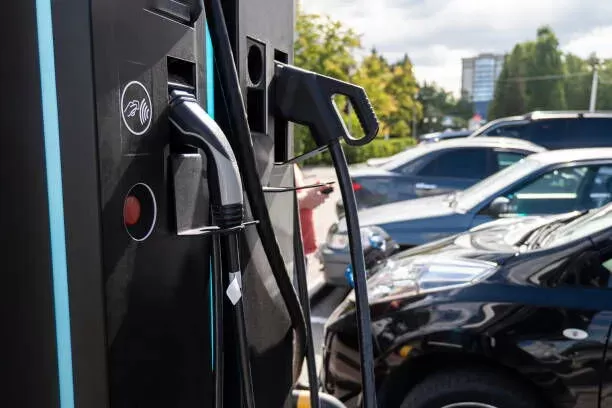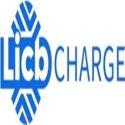Notifications

8 minutes, 0 seconds
-12 Views 0 Comments 0 Likes 0 Reviews

As a leading EV chargers manufacturer in China, LiCB Charge delivers dependable AC and DC electric vehicle charging stations along with comprehensive charging solutions.
As electric vehicles (EVs) become increasingly popular, the demand for fast, efficient charging infrastructure is growing just as rapidly. EV charging is commonly categorized into three levels—Level 1, Level 2, and Level 3—each offering different speeds and capabilities. Of these, Level 3 charging stations stand out as the fastest and most powerful solution available for public and commercial use.
Often referred to as DC Fast Charging (DCFC), Level 3 chargers deliver high power outputs ranging from 50 kW to over 500 kW. However, not all EVs can utilize these maximum speeds. The actual charging rate is always limited by the vehicle's onboard capabilities. For instance, an EV that supports a maximum of 50 kW will only charge at that speed, even if connected to a 350 kW station.
This article explores the technology behind Level 3 chargers, how they differ from Level 1 and Level 2 charging systems, and what they mean for drivers, fleet operators, and commercial property owners.
To understand Level 3 charging, it's crucial to first distinguish between alternating current (AC) and direct current (DC):
AC power is what comes from the grid and powers homes and businesses.
DC power is what EV batteries store.
Because EV batteries can only store DC power, grid-supplied AC must be converted to DC before charging. The primary difference between charging levels lies in where this AC-to-DC conversion occurs.
In Level 1 and Level 2 charging, the AC-to-DC conversion happens inside the vehicle using its onboard charger, which limits charging speed.
Level 1 Charging: Uses a standard 120V household outlet. Adds approximately 2–5 miles of range per hour.
Level 2 Charging: Uses a 240V outlet, like those used for dryers. Adds 10–60 miles of range per hour, depending on the equipment and vehicle.
Level 3 chargers perform the AC-to-DC conversion externally, bypassing the vehicle's onboard charger and feeding DC power directly into the battery. This enables much faster charging speeds, typically between 50 kW and 350 kW, and up to 500 kW with ultra-fast models.
With Level 3 charging, many EVs can go from 20% to 80% charge in just 15 to 45 minutes, depending on the vehicle and battery capacity.
Level 3 chargers require significantly more infrastructure than Level 1 or Level 2 chargers:
Level 2 Charging: Operates on a 240V single-phase power supply.
Level 3 Charging: Requires a 480V three-phase industrial-grade supply, often unavailable in residential settings.
Because of these demands, Level 3 chargers are usually installed at public charging sites, rest areas, fleet depots, and commercial properties.
Level 3 charging units are larger and heavier than Level 2 chargers—some can weigh over 500 pounds. They require professional installation, secure mounting, and cooling systems to manage heat during high-speed charging.
Common Level 3 plug types include:
CCS (Combined Charging System) – the most widely used fast-charging standard globally.
CHAdeMO – primarily used in Asian EV models (e.g., Nissan).
Tesla Supercharger – proprietary connector used by Tesla, though adapters are becoming available for broader compatibility.
| Charging Level | Voltage | Power Output | Typical Time (20–80%) | Range Added (30 mins) |
|---|---|---|---|---|
| Level 2 | 240V | 3.3–19.2 kW | 4–8 hours (full) | 10–30 miles |
| Level 3 (DCFC) | 480V+ | 50–500 kW | 15–45 minutes | 60–200+ miles |
Actual times vary depending on battery capacity, vehicle model, temperature, and state of charge.
Given their cost and complexity, Level 3 chargers are most practical for:
Public Charging Stations: Ideal for highways and city centers, enabling long-distance travel and reducing range anxiety.
Fleet Depots: Perfect for commercial fleets, buses, and ride-sharing vehicles requiring quick turnaround.
Commercial Locations: Shopping centers, hotels, and gas stations can attract customers with the promise of fast charging.
Not all EV drivers need Level 3 charging. Many can rely on Level 2 at home or work. But for road trips or commercial use, Level 3 charging is essential.
Installing a Level 3 station can cost $30,000 to $100,000+, factoring in:
Utility service upgrades
Demand charges
Site preparation
Network integration and maintenance
Not all EVs support Level 3 charging. Some lower-end or older models are limited to Level 2 speeds even if connected to a DC fast charger.
DC fast charging pulls significant energy from the grid, especially when multiple units run concurrently. This can result in demand surcharges and may require coordination with utility providers.
While growing rapidly, Level 3 chargers are still less common than Level 2 due to their cost and infrastructure needs. However, government incentives are accelerating their rollout.
Despite the challenges, Level 3 charging offers compelling benefits:
Faster Turnaround: Essential for fleets and high-traffic charging locations.
Customer Attraction: EV drivers prioritize speed and convenience—Level 3 brings both.
Sustainability Goals: Installing fast chargers supports green initiatives and may qualify for tax breaks or environmental certifications.
Future-Readiness: As EV battery capacities and charge speeds increase, Level 3 infrastructure ensures long-term viability.
Level 3 charging stations are transforming the EV landscape by making fast, efficient charging a reality. While upfront costs and infrastructure requirements are high, the long-term benefits—from increased revenue to environmental responsibility—are substantial.
For businesses, municipalities, and fleet operators, Level 3 chargers are a strategic investment that future-proofs operations and keeps pace with evolving EV technologies.
As automakers roll out next-gen EVs with faster charging capabilities and government programs continue to support infrastructure growth, Level 3 charging will be key to enabling a cleaner, electric-powered future.Know more about Google SEO Directory
China EV Chargers EV Charger Manufacturer Smart EV Chargers Electric Car Chargers Electric Vehicle Chargers Electric Car Charging Stations

